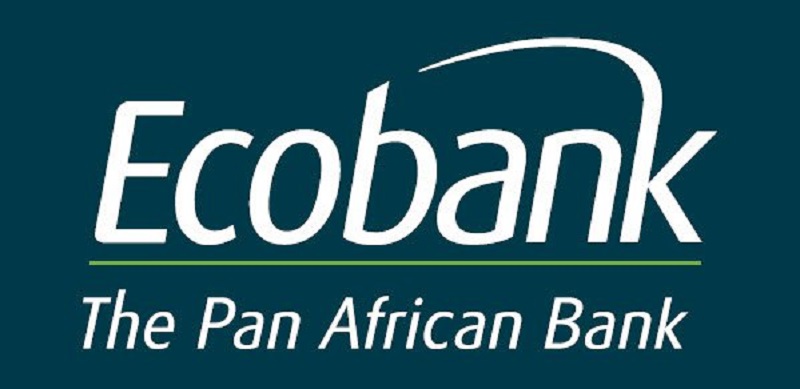Banking
Jaiz Bank Rolls Out Expansion Initiatives, to Deepen Financial Inclusion

By Adedapo Adesanya
The management of Jaiz Bank Plc led by its Managing Director/Chief Executive Officer, Mr Hassan Usman, has said the major player in the non-interest banking sector plans to expand its operations across the country.
At a parley with the media on Tuesday in Lagos, Mr Usman said efforts would be made to sensitize Nigerians on the need to embrace products of the financial institution, saying they were open to everyone irrespective of creed or personal beliefs.
According to him, Jaiz Bank, which is an Islamic bank, operates like the conventional financial institution despite its peculiarities in terms of operations.
Making a distinction between the two types of banking system, Mr Usman said conventional banks were known for their loan contracts through current accounts and terms with the promise of interests, but on the part of an Islamic bank, it does something similar (taking deposits on current accounts) without request for additional returns.
However, he said if a customer seeks remuneration from Jaiz Bank for deposits, a different contract would be established where the deposit is exposed to look like an equity, with the bank acting like an agent to trade the money, sharing proceeds from the investment between both parties.
“We have already started pilot financial inclusion drive. We are also going to use agency banking to reach those people in places where we are not physically present,” he said, adding that despite the absence of physical presence in some parts of the country, the bank was still serving the needs of many through mobile and Internet banking.
“We are also intervening to provide finance to women group,” he added.
Speaking on challenges faced by the lender in its emerging years, the bank chief said one of them was the lack of investment instruments such as treasury bills and bonds.
However, he said in the last 18 months, the financial institution has been able to get over this with the issuance of the first and second tranches of Sukuk by the Central Bank of Nigeria (CBN).
Speaking on intervention funds, Mr Usman said the bank had been able to work with the central bank and the Bank of Industry (BoI) to support critical sectors of the economy.
According to him, the BoI provided a N3 billion financing facility for the development of the Micro, Small and Medium Enterprises sector of the economy, which he said would go a long way to make things better.
Mr Usman assured that Jaiz Bank would continuously redefine standards in all it does, stating that the company was poised to creating a responsible business that better meets its customers’ needs and a culture where its employees put customers first.
The Jaiz Bank boss added that the bank aims to hold its role as a leader in the ethical banking sector in Sub-Saharan Africa and also strive to be the best financial service provider for customers to bank, for employees to pursue careers and for shareholders to invest.
Business Post reports that in its third quarter earnings, Jaiz Bank grew its profit before tax by 509.47 percent to N1.47 billion from N241.3 million in the corresponding period of last year, while the profit after tax increased by 673.21 percent to N1.25 billion from N161.7 million, with the total assets rising by 40 percent from N108.46 billion to N152 billion.
Banking
CBN Grants Bank of Industry Approval to Operate Non-Interest Banking

By Adedapo Adesanya
The Bank of Industry (BoI) has secured regulatory approval from the Central Bank of Nigeria (CBN) to offer Non-Interest Banking (NIB) services, marking a major expansion of its financing framework.
The approval was disclosed in a statement by the BoI Managing Director, Mr Olasupo Olusi, on Sunday, February 8, 2026.
The move is expected to strengthen the bank’s role in promoting sustainable industrial development and improving access to finance for underserved and high-impact business segments across Nigeria.
With the approval, BoI is authorised to commence non-interest banking operations, providing ethical, asset-backed financing options that prohibit interest and promote risk-sharing.
The initiative aligns with growing demand for alternative financing structures that support inclusive growth and social development objectives.
Mr Olusi described the approval as a significant milestone in the bank’s growth and long-term development agenda, adding that it positions BoI to deepen its contribution to Nigeria’s industrialisation drive through tailored financial solutions.
“This development marks a significant milestone in the Bank of Industry’s growth and long-term development agenda,” Olusi said.
“It positions the bank to further advance Nigeria’s sustainable and inclusive industrial development through tailored financial solutions for underserved and high-impact business segments.”
“Under this framework, BoI will be able to finance assets and raw materials for customers using approved non-interest banking products,” he added.
Mr Olusi noted that the approval underscores the CBN’s confidence in BoI’s governance and commitment to responsible financing.
He said the licence would allow the bank to scale its operations, introduce innovative financing solutions, deepen support for Micro, Small and Medium Enterprises (MSMEs), and reach a new category of borrowers who were previously unable to access BoI’s funding.
Reconstructed in 2001 from the former Nigerian Industrial Development Bank (NIDB) Limited, BoI was originally incorporated in 1959 to transform the country’s industrial sector by providing long-term, low-interest financing and advisory support to various enterprises.
The introduction of a non-interest banking window is expected to broaden BoI’s financing toolkit and attract new pools of ethical and faith-based capital.
Banking
Yemi Kale for Second Ecobank Customer Forum on Regional Integration

By Modupe Gbadeyanka
The Group Chief Economist and Managing Director for Research and Trade Intelligence at the African Export-Import Bank (Afreximbank), Mr Yemi Kale, has been pencilled down to deliver the keynote address at the second Ecobank Customer Forum.
The programme, themed Strengthening Regional Integration for Economic Transformation, will take place at the Ecobank Pan-African Centre (EPAC) in Lagos.
The forum, organised by the bank’s Fixed Income, Currencies and Commodities (FICC) Business (Treasury), is designed to examine critical issues shaping Nigeria’s and Africa’s economic outlook in 2026, with particular focus on trade, financial markets, foreign exchange liquidity and regional integration, especially as the African Continental Free Trade Area (AfCFTA) agreement enters a strategic phase of implementation.
The Regional Treasurer for Ecobank Nigeria Limited, Mr Olumide Adebayo, said the one-day programme reinforces the lender’s role as a trusted financial partner and customer-focused institution, with the intention to foster dialogue, support informed decision-making, and deeper regional economic integration across Africa.
According to him, the seminar will open with welcome remarks by the Managing Director/Regional Executive of Ecobank Nigeria, Mr Bolaji Lawal, who will underscore the bank’s commitment to supporting customers and driving inclusive growth through strategic dialogue, innovation and pan-African collaboration.
The keynote address, titled The Future of Trade in Africa: Harnessing the AfCFTA for Economic Transformation, will be delivered by Mr Kale and will provide insights into Africa’s trade prospects and the transformative potential of the AfCFTA.
The forum will feature two high-level panel discussions: Balancing the Risk between Interest Rate and Exchange Rate: Business Expectations and Outlook in 2026, and Export Proceeds, Oil Receipts and Remittances in 2026: Exploring Options that Best Support FX Liquidity and Flows in Nigeria.
The event would be moderated by Messrs. Aruoture Oddiri, Host and Producer of Global Business Report on Arise News and Barnabas Vajeh of Ecobank Nigeria Limited.
Banking
Sterling Holdco Interim FY25 Results Show Rise in Earnings, Profit

By Aduragbemi Omiyale
The 2025 full-year interim financial statements of Sterling Financial Holdings Company Plc released to the Nigerian Exchange (NGX) Limited revealed that pre-tax profit increased by 99 per cent to N90.7 billion.
The parent company of The Alternative Bank and Sterling Bank showcased an improvement in operational efficiency by cutting its cost-to-income ratio to 63 per cent from 72 per cent in 2024.
In the period under review, the gross earnings grew by 46 per cent to N476.5 billion, driven by healthy growth in both interest and non-interest income, with the former up by 43 per cent to N369.6 billion, fueled by an increase in loans and advances and improved yields on investment securities.
Also, the non-interest income expanded by 57.3 per cent, supported by higher trading income and growth in fees and commissions.
As for the balance sheet, it was robust as total assets surged by 11 per cent to nearly N4 trillion, a strong indicator of its expanded market footprint, with customer deposits rising by 18 per cent to N2.98 trillion, further reflecting the organisation’s successful efforts in enhancing customer engagement and product adoption across its platforms.
Sterling Holdco has also continued to strengthen its capital position, with shareholders’ funds increasing 39 per cent to N424.0 billion.
This bolstered capital base ensures the group’s banking subsidiaries are well-equipped to support its future growth initiatives, having met the recapitalisation requirements of the Central Bank of Nigeria (CBN) ahead of the March 2026 deadline.
This achievement was driven by a series of disciplined capital-raising initiatives, including a public offer of over N88 billion to bolster Sterling Bank’s position, and a prior capital injection that secured The Alternative Bank’s status as a national non-interest bank.
The results reflect a diversified earnings base, an emphasis on efficient capital deployment, and a strengthened operational foundation, all of which position Sterling Holdco for continued growth in the competitive financial services landscape.
-

 Feature/OPED6 years ago
Feature/OPED6 years agoDavos was Different this year
-
Travel/Tourism9 years ago
Lagos Seals Western Lodge Hotel In Ikorodu
-

 Showbiz3 years ago
Showbiz3 years agoEstranged Lover Releases Videos of Empress Njamah Bathing
-

 Banking8 years ago
Banking8 years agoSort Codes of GTBank Branches in Nigeria
-

 Economy3 years ago
Economy3 years agoSubsidy Removal: CNG at N130 Per Litre Cheaper Than Petrol—IPMAN
-

 Banking3 years ago
Banking3 years agoSort Codes of UBA Branches in Nigeria
-

 Banking3 years ago
Banking3 years agoFirst Bank Announces Planned Downtime
-

 Sports3 years ago
Sports3 years agoHighest Paid Nigerian Footballer – How Much Do Nigerian Footballers Earn












